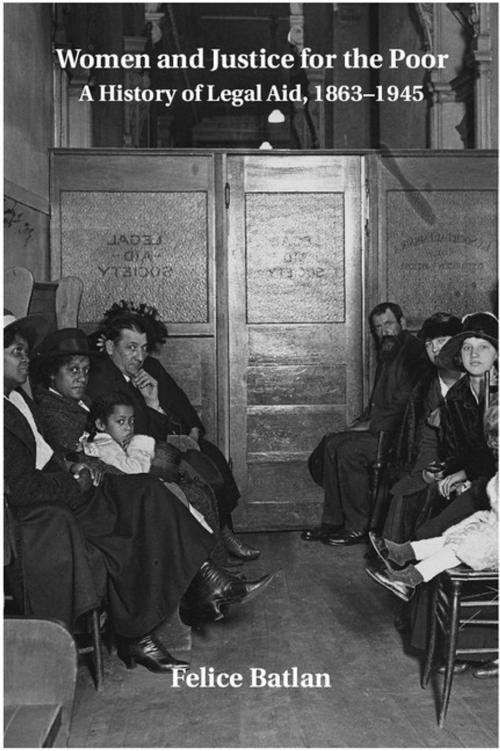Women and Justice for the Poor
A History of Legal Aid, 1863–1945
Nonfiction, Reference & Language, Law, Legal History, History| Author: | Felice Batlan | ISBN: | 9781316028421 |
| Publisher: | Cambridge University Press | Publication: | April 16, 2015 |
| Imprint: | Cambridge University Press | Language: | English |
| Author: | Felice Batlan |
| ISBN: | 9781316028421 |
| Publisher: | Cambridge University Press |
| Publication: | April 16, 2015 |
| Imprint: | Cambridge University Press |
| Language: | English |
This book re-examines fundamental assumptions about the American legal profession and the boundaries between 'professional' lawyers, 'lay' lawyers, and social workers. Putting legal history and women's history in dialogue, it demonstrates that nineteenth-century women's organizations first offered legal aid to the poor and that middle-class women functioning as lay lawyers, provided such assistance. Felice Batlan illustrates that by the early twentieth century, male lawyers founded their own legal aid societies. These new legal aid lawyers created an imagined history of legal aid and a blueprint for its future in which women played no role and their accomplishments were intentionally omitted. In response, women social workers offered harsh criticisms of legal aid leaders and developed a more robust social work model of legal aid. These different models produced conflicting understandings of expertise, professionalism, the rule of law, and ultimately, the meaning of justice for the poor.
This book re-examines fundamental assumptions about the American legal profession and the boundaries between 'professional' lawyers, 'lay' lawyers, and social workers. Putting legal history and women's history in dialogue, it demonstrates that nineteenth-century women's organizations first offered legal aid to the poor and that middle-class women functioning as lay lawyers, provided such assistance. Felice Batlan illustrates that by the early twentieth century, male lawyers founded their own legal aid societies. These new legal aid lawyers created an imagined history of legal aid and a blueprint for its future in which women played no role and their accomplishments were intentionally omitted. In response, women social workers offered harsh criticisms of legal aid leaders and developed a more robust social work model of legal aid. These different models produced conflicting understandings of expertise, professionalism, the rule of law, and ultimately, the meaning of justice for the poor.















